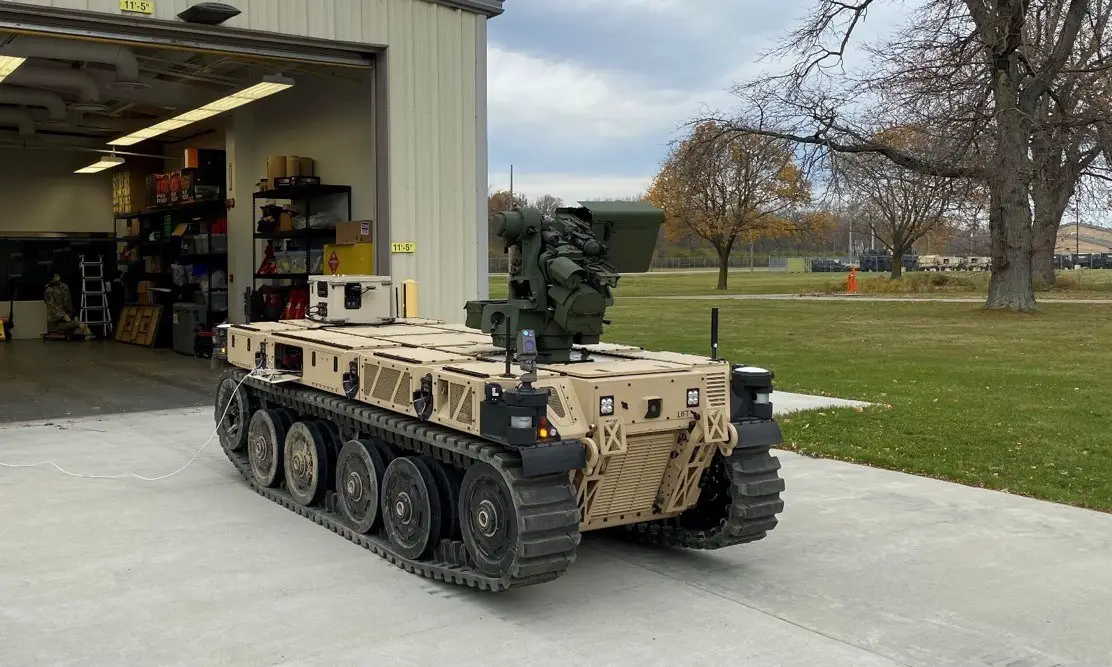Stratom, a leading developer of autonomous ground vehicles and robotic systems for logistics and operational applications, today announced the Army has awarded the company a contract to develop a personnel safety system for Robotic Combat Vehicle-Light. Known as the Perimeter Safety for Autonomous Vehicles (P-SAV) system, the robotic system will provide 360-degree sensor coverage and a computer system that leverages machine learning to intelligently identify objects close to the vehicle. Designed to be configurable for additional vehicle platforms, P-SAV will include newly developed ROS2-based software to communicate the appropriate information to the RCV’s operator and its computer system to execute appropriate behaviors.
“As robotic vehicles are increasingly utilized across applications where it may be inconvenient, dangerous or impossible to have a human operator present, we are excited for the opportunity to bring our successful past performance to the RCV-L program and continue supporting the government in its objective to move toward autonomous systems. Additionally, we look forward to capitalizing on this innovative solution’s strong commercial potential to supplement many pieces of equipment with perimeter monitoring capabilities across industries. From mining operations to construction, our P-SAV solution will be designed to mitigate damage to equipment by inexperienced operators and minimize downtime,” said Mark Gordon, Stratom’s president and CEO.
“At Stratom, we have a deep understanding of the Army’s needs and objectives, which positions us to uniquely recognize what they’re looking for — and then transform our technical expertise into solutions that meet the Department of Defense’s operational needs,” said Andrew Lycas, Stratom’s principal roboticist. “Even better, this solution illustrates our investment in developing the Summit Off-Road Autonomy Platform is already paying dividends. We will leverage Summit and the recently developed eXpeditionary Robotic-Field Artillery Autonomous Resupply (XR-FAAR)™ vehicle platform as a surrogate for the RCV-L to complete rigorous testing of the P-SAV prototype before deploying the module onto RCV-L.”
The standalone appliqué kit for RCV-L will combine robust hardware components, a well-protected computer system and advanced image processing software to automate difficult tasks, such as personnel identification and situational awareness for vehicle operation in challenging conditions. Plus, the platform will be designed to maximize the reliability of results in all weather conditions while balancing ease of use, versatility and cost. This contract win builds off of Stratom’s past success with U.S. Marine Corps and U.S. Army programs that ultimately resulted in the development of Stratom’s Autonomous Pallet Loader (APL)™, eXpeditionary Robotic-Platform (XR-P)™ and XR-FAAR vehicles.
Stratom is a global leader in the development of autonomous ground vehicles and robotic systems that solve the most pressing real-world logistics and operational challenges for commercial and defense applications. Specializing in autonomous cargo movement, robotic refueling, robotic hazardous liquid transfer and autonomous mobile robots (AMRs), the company’s military-proven tools, methods, technologies and strategic services solve the most difficult logistics and operational challenges. Whether in safe, controlled settings or dynamic and challenging terrain, Stratom provides unique solutions to meet each customer’s specific needs. With its extensive expertise in R&D, engineering and system integration of autonomous technologies and solutions, Stratom, a Service-Disabled Veteran Owned Small Business, is the go-to expert for global corporations, local businesses and government institutions.















